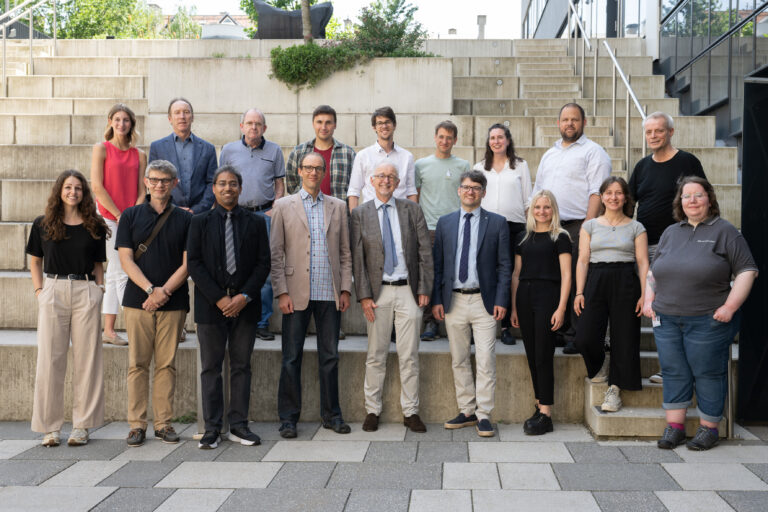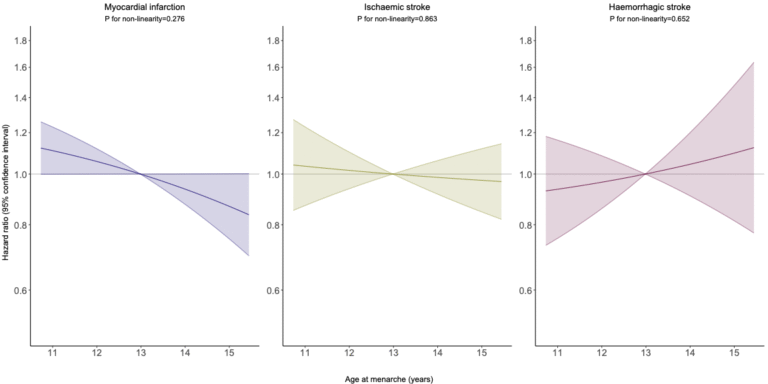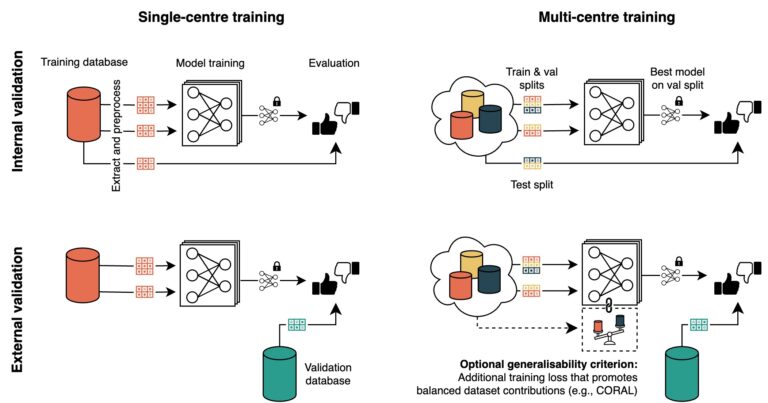
Muellerstrasse 59/3
6020 Innsbruck
Email: epi@i-med.ac.at
Website: https://epicenter.i-med.ac.at/
Research year
Research Branch (ÖSTAT Classification)
303025, 303026, 205905, 305907, 303007, 30010, 305902
Keywords
AI, cancer, cardiovascular disease, Clinical Trials, Epidemiology, health economics, infectious diseases, Medical Informatics, Medical Statistics, and public health
Research Focus
Our institute is dedicated to transforming data into medical knowledge. Our research is centred on the epidemiology and public health of cardiovascular, cancer and infectious diseases. We use cutting-edge solutions in AI and machine learning, causal inference and traditional statistical methods to unlock the potential of health data
General Facts
The Institute of Clinical Epidemiology, Public Health, Health Economics, Medical Statistics and Informatics (EpiCenter Innsbruck) has several research priorities. First, we conduct research into risk markers and prediction models of cardiovascular diseases and cancer. We analyse data from long-term follow-up cohorts and international consortia led by our group. Second, we investigate infectious diseases in terms of disease burden and prevention strategies. Third, we develop innovative solutions for AI and machine learning approaches. Fourth, we translate our research results into effective public health strategies.
The EpiCenter is a major contributor to the teaching of medical students. In addition to offering compulsory lectures, we teach and assist students working on their respective theses on the use of statistical and epidemiological methods.
We also provide statistical consultations to all researchers at the MUI with a focus on clinical studies.
Research
Epidemiology and public health of cardiovascular disease
Isabel Geiger, Sunge Makawa, Clara Meijs, Patrick Rockenschaub, Lisa Seekircher, Lena Tschiderer, Lisa Waltle, Peter Willeit
The EpiCenter Innsbruck is dedicated to leading research into CVD, with a determination to gain a deeper understanding and characterisation of the phenomenon. We are the driving force behind the Proof-ATHERO Consortium, a collaboration of over 70 studies with a focus on atherosclerosis and CVD (Gerontology 2020). In September 2023, we published a manuscript outlining studied the optimal wall-specific measurement location of cIMT in Proof-ATHERO (EHJ Open 2023). Another specific focus is our work on the Bruneck study, which was launched in 1990 and had its most recent follow-up in 2023. We also focused on the role of female-specific factors in CVD. We published the followinglarge-scale analyses investigating the relationship between (1) age at menopause and stroke (JAHA 2023), (2) hypertensive pregnancy disorders and CVD (Heart 2024) and (3) age at menarche and CVD (EJPC 2025). Furthermore, we investigated sex-specific relationships between cardiometabolic factors and the risk of subarachnoid haemorrhage and intracranial aneurysms (Eur Stroke J 2024). Our institute was also involved in evaluations of the ACaSA study, in which we assessed weather conditions and sleep apnea (J Sleep Res 2025). We are currently establishing a database including data on blood-based markers of blood donors from Tyrol, collected between 1994 and 2024.
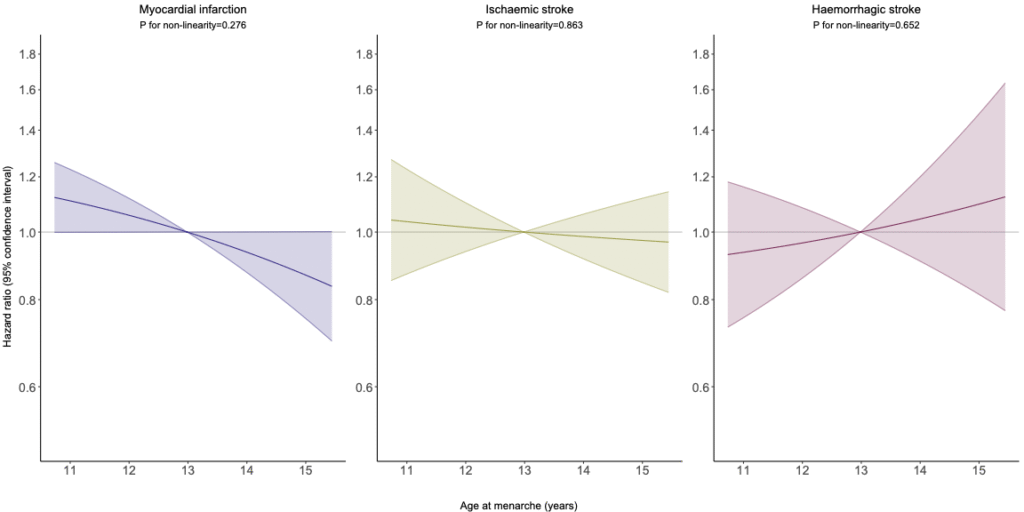
Epidemiology and public health of infectious diseases
Katie Bates, Lisa Seekircher, Lena Tschiderer, Hanno Ulmer, Peter Willeit
We assessed SARS-CoV-2 antibody seroprevalence among blood donors from June 2020 to March 2023, working closely with the Central Institute for Blood Transfusion. The results showed stable seroprevalence between May 2022 and March 2023, with Spike RBD IgG antibody titres peaking in December 2022. This was influenced by vaccination and infection history (Vaccines Basel 2024). We also tracked anti-Spike IgG titres in over 8,000 blood donors, finding higher titres linked to reduced SARS-CoV-2 infection risk even in the Omicron era (J Med Virol 2024). Another study revealed that 51.4% of Tyrol donors had anti-HBs antibodies, highlighting the need for catch-up HBV vaccination (Vaccines Basel, 2024). The REDUCE lasting demonstrated the long-term effectiveness of vaccination in reducing SARS-CoV-2 incidence (iScience 2024). A third study of Ischgl as a European COVID-19 hotspot revealed significant pandemic impacts on residents’ mental and physical health (Front Public Health 2025).
AI and Machine Learning
Patrick Rockenschaub, Matthias Perkonigg
Our institute is committed to developing AI solutions for routine clinical use, focusing on robustness and generalisability across healthcare settings. In collaboration with international partners, we built predictive models for critical-care risk assessment using harmonised ICU data from multiple hospitals. These models are trained across multiple centres, maintain reliable performance in new clinical environments and address real-world implementation barriers (Crit Car Med, 2024). We also advanced image-based machine learning methods, including a category-discovery framework to classify unrecognised pathological patterns and an adaptive segmentation approach that learns from various annotation styles without losing prior knowledge. These efforts aim to create AI tools that deliver accurate, interpretable insights for everyday patient care.
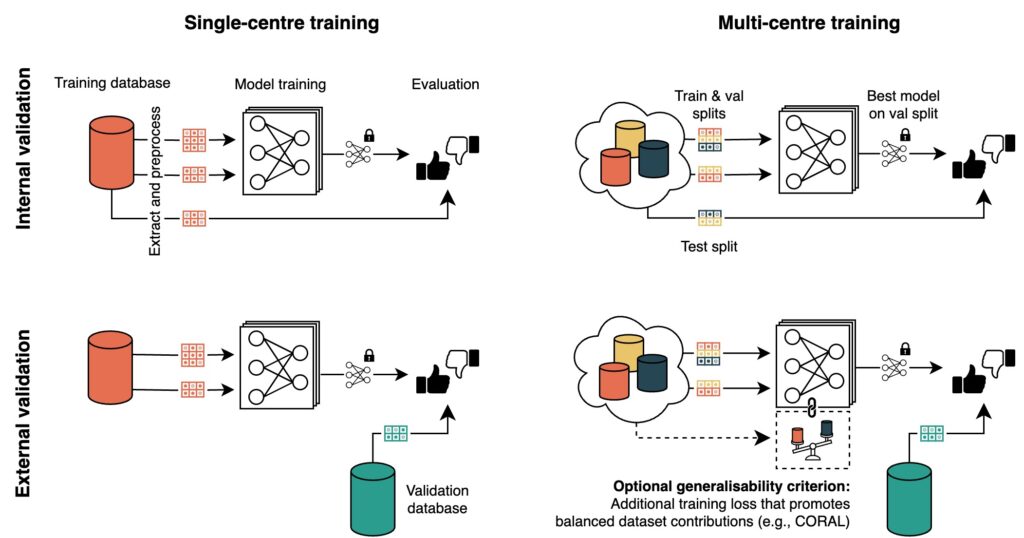
Statistical Methods and Causal Inference
Josef Fritz, Stefan Kuhle, Paul Klingler, Sarah Maier, Clara Meijs, Sunge Makawa, Lena Tschiderer, Hanno Ulmer, Peter Willeit
At the EpiCenter Innsbruck, we apply advanced statistical methods to improve causal inference in epidemiology, focusing on robust interpretations from observational data. A key method is mediation analysis, which is used to assess the joint contributions of multiple factors like insulin resistance and hypertension in conditions such as end-stage kidney disease. We also explore how left ventricular ejection fraction mediates outcomes in chronic heart failure (Heart 2024), and study pathways linking obesity and prostate cancer mortality (Br J Cancer 2024). We are examining collider bias (Cancer Med 2025) and using Target Trial Emulation (Cancer Immunology, Immunotherapy 2024) to assess immune-related adverse events in cancer treatment. We also conduct Mendelian Randomization studies and large-scale meta-analyses using individual-level data from global consortia. This allows us to better understand the development of CVD.
Cancer Epidemiology
Josef Fritz, Sarah Maier, Hanno Ulmer
Cancer is a leading cause of global morbidity and mortality. We must identify modifiable risk factors to prevent it. At the EpiCenter Innsbruck, we focus on metabolic and lifestyle factors in cancer risk and prognosis. We contribute to the Me-Can project, pooling data from 570,000 individuals across Sweden, Norway and Austria. It is our aim to link metabolic syndrome components such as obesity and hypertension to cancer risk. Recent studies show that obesity combined with other metabolic abnormalities poses a significantly greater risk. Our work also identifies adiposity and insulin resistance as significant risk factors for prostate cancer mortality. Our research shows that waist circumference in a large Swedish cohort is a stronger predictor of obesity-related cancer risk than BMI. This is especially true for men (JNCI 2025).
PRESENT project
Georg Göbel, Paul Klingler
PRESENT (PREdictions for Science, Engineering N’ Technology) is a research project funded by the Austrian Research Promotion Agency (FFG). It deals with time series data. The EpiCenter is part of a consortium comprising 20 partners. The project’s goal of the is to make the analysis of time series data accessible to a wider audience. This includes hospital capacity predictions using patient flow data to facilitate management of hospital resources, as well as the classification of different surgical procedures by data from a robotic microscope to aid surgeons during a procedure by suggesting upcoming visual changes.
Cohort studies, clinical trials, and registries
Lalit Kaltenbach, Sarah Maier, Patrick Rockenschaub, Lena Tschiderer, Hanno Ulmer, Lisa Waltle, Peter Willeit
Our institute is involved in several cohort studies. The Bruneck study is a prime example of our commitment to long-term research. Initiated in 1990, it was extended with a second cohort recruited in 2017-2019 and it is still ongoing. We conducted a study visit for 922 participants of the original Bruneck cohort and the extension in November and December 2023. The EpiCenter has worked with a second cohort concerning the health examinations of the province Vorarlberg between 1985 and 2005, known as the VHM&PP. This study collected data on various health parameters, lifestyle factors and medical outcomes of more than 180,000 participants. In 2024, we evaluated the effects of a population-based screening programme for skin cancer on melanoma mortality (Cancers 2024).
Our institute is participating significantly in several randomised controlled trials, including LeoDor (EJHF 2023), CAST-HF (EHJ 2024), TAVR-CMR (Circulation 2023), BiPhox and HARVITA trial.
Currently, the institute operates four Austrian-wide registries: the PCI registry, the IIK registry, the Ablation registry and the Parkinson’s registry.
Pictures
Selected Publications
Fritz J, Jochems SHJ, Bjørge T, Wood AM, Häggström C, Ulmer H, Nagel G, Zitt E, Engeland A, Harlid S, Drake I, Stattin P, Stocks T. Body mass index, triglyceride-glucose index, and prostate cancer death: a mediation analysis in eight European cohorts. Br J Cancer. 2024 Feb;130(2):308-316. doi: 10.1038/s41416-023-02526-1.
Lena Tschiderer, Sanne A E Peters, Yvonne T van der Schouw, Stephen Burgess, Janneke Luijken, Cheyenne Bijmolt, Houda Soliman, Adam S Butterworth, Angela M Wood, Tammy Y N Tong, Christina C Dahm, Lisa Seekircher, Anne Tjønneland, Lene Mellemkjær, Matthias B Schulze, Giovanna Masala, Sabina Sieri, Salvatore Panico, Carlotta Sacerdote, Jolanda M A Boer, W M Monique Verschuren, Carlota Castro-Espin, Dafina Petrova, Sandra M Colorado-Yohar, Conchi Moreno-Iribas, Elisabete Weiderpass, Alicia K Heath, Ioanna Tzoulaki, Peter Willeit, N Charlotte Onland-Moret, Reassessing the association between age at menarche and cardiovascular disease: observational and Mendelian randomization analyses, European Journal of Preventive Cardiology, 2025; https://doi.org/10.1093/eurjpc/zwaf051.
Lisa Seekircher, Manfred Astl, Lena Tschiderer, Gregor A Wachter, Julia Penz, Bernhard Pfeifer, Andreas Huber, Pedro M Afonso, Manfred Gaber, Harald Schennach, Anita Siller, Peter Willeit: Anti-Spike IgG antibodies as correlates of protection against SARS-CoV-2 infection in the pre-Omicron and Omicron era. J Med Virol. 2024;96(8):e29839. PubMed: 39105391 doi: 10.1002/jmv.29839.
Rockenschaub, Patrick, A. Hilbert, Tabea Kossen, Paul Elbers, Falk von Dincklage, V. Madai, and D. Frey. 2024. “The Impact of Multi-Institution Datasets on the Generalizability of Machine Learning Prediction Models in the ICU.” Critical Care Medicine 52 (11): 1710–21.
Tschiderer L, Innerhofer H, Seekircher L, Waltle L, Richter L, Kimpel J, Lass-Flörl C, Forer L, Schönherr S, Larsen DA, Krammer F, Embacher-Aichhorn S, Tilg H, Weiss G, Allerberger F, Willeit P. Long-term effectiveness of an ultra-rapid rollout vaccination campaign with BNT162b2 on the incidence of SARS-CoV-2 infection. iScience. 2024 Oct 10;27(11):111117. doi: 10.1016/j.isci.2024.111117.]
Tschiderer, Lena; van der Schouw, Yvonne T.; Burgess, Stephen; Bloemenkamp, Kitty W M.; Seekircher, Lisa; Willeit, Peter; Onland-Moret, Charlotte; Peters, Sanne A E.: Hypertensive disorders of pregnancy and cardiovascular disease risk: a Mendelian randomisation study.
HEART. 2024; 110(10); 710-717.
PubMed: 38148158 doi: 10.1136/heartjnl-2023-323490 [FLDID: 141167] IF: 5,700 / ZIT: 0
Tschiderer, L.; Peters, SAE.; van der Schouw, YT.; van Westing, AC.; Tong, TYN.; Willeit, P.; Seekircher, L.; Moreno-Iribas, C.; Huerta, JM.; Crous-Bou, M.; Söderholm, M.; Schulze, MB.; Johansson, C.; Själander, S.; Heath, AK.; Macciotta, A.; Dahm, CC.; Ibsen, DB.; Pala, V.; Mellemkjaer, L.; Burgess, S.; Wood, A.; Kaaks, R.; Katzke, V.; Amiano, P.; Rodriguez-Barranco, M.; Engström, G.; Weiderpass, E.; Tjonneland, A.; Halkjaer, J.; Panico, S.; Danesh, J.; Butterworth, A.; Onland-Moret, NC.: Age at Menopause and the Risk of Stroke: Observational and Mendelian Randomization Analysis in 204 244 Postmenopausal Women.
JOURNAL OF THE AMERICAN HEART ASSOCIATION. 2023; 12(18); e030280.
PubMed: 37681566 doi: 10.1161/JAHA.123.030280 [FLDID: 140044] IF: 5,400 / ZIT: 0
Seekircher, Lisa; Muehlbacher, Annelies; Tschiderer, Lena; Wachter, Gregor A.; Astl, Manfred; Schennach, Harald; Siller, Anita; Willeit, Peter: Anti-HBs Seroprevalence in Blood Donors from Tyrol, Austria.
VACCINES. 2024; 12(10); 1156.
PubMed: 39460323 doi: 10.3390/vaccines12101156 [FLDID: 143655] IF: 5.200 (2023) / ZIT: 0
Pichler, R.; Fritz, J.; Maier, S.; Hassler, MR.; Krauter, J.; D Andrea, D.; Laukhtina, E.; Gust, K.; Mori, K.; Tully, KH.; Niedersuess-Beke, D.; Korber, L.; Spiegelberg, JA.; Bauernhofer, T.; Subiela, JD.; Mayr, R.; Kronbichler, A.; Moschini, M.; Teoh, J.; Pradere, B.; Shariat, SF.; Ulmer, H.; Mertens, LS.; European Association of Urology¿Young Academic Urologists : Urothelial Carcinoma Working Group: Target trial emulation to evaluate the effect of immune-related adverse events on outcomes in metastatic urothelial cancer.
CANCER IMMUNOLOGY IMMUNOTHERAPY. 2025; 74(1); 30.
PubMed: 39708183 doi: 10.1007/s00262-024-03871-7 [FLDID: 144137] IF: 4.600 (2023) / ZIT: 0
Fritz, Josef; Belovari, Katrin; Ulmer, Hanno; Zaruba, Marc-Michael; Messner, Moritz; Ungericht, Maria; Siebert, Uwe; Ruschitzka, Frank; Bauer, Axel; Poelzl, Gerhard: Aetiology, ejection fraction and mortality in chronic heart failure: a mediation analysis.
HEART. 2024; 110(4); 290-298.
PubMed: 37722825 doi: 10.1136/heartjnl-2023-322803 [FLDID: 139164] IF: 5.100 (2023) / ZIT: 3
Sun, M.; Häggström, C.; Da Silva, M.; Mboya, IB.; Lagerros, YT.; Michaëlsson, K.; Sandin, S.; Leppert, J.; Hägg, S.; Elmståhl, S.; Magnusson, PKE.; Söderberg, S.; Yin, W.; Chabok, A.; Wood, A.; Stocks, T.; Fritz, J.: Comparing waist circumference with body mass index on obesity-related cancer risk: a pooled Swedish study.
JOURNAL OF THE NATIONAL CANCER INSTITUTE. 2025. [Epub ahead of print];
PubMed: 40156135
Brozek, Wolfgang; Clemens, Patrick; Ulmer, Hanno; Haering, Nina; Concin, Hans; Zitt, Emanuel; Nagel, Gabriele: Evaluation of a Population-Based Targeted Screening Approach for Skin Cancer with Long-Time Follow-Up in Austria including Potential Effects on Melanoma Mortality.
CANCERS. 2024; 16(7); 1283.
PubMed: 38610961 doi: 10.3390/cancers16071283 [FLDID: 142473] IF: 4.500 (2023) / ZIT: 1
Bates, K.; Borena, W.; McKee, M.; Hayek, L.; Bouanchaud, P.; Bánki, Z.; Riepler, L.; Rössler, A.; Falkensammer, B.; Paetzold, J.; Walser, A.; Schönherr, S.; Forer, L.; Knabl, L.; Kimpel, J.; von Laer, D.; Ulmer, H.: Changes in self-reported physical and mental health, behaviour and economic status among adults by known seropositivity and sociodemographic factors before and after the COVID-19 pandemic outbreak in Ischgl, Austria.
FRONTIERS IN PUBLIC HEALTH. 2025. 13; 1488108
Selection of Funding
FWF, Sex differences in the effects of cardiovascular medications, Lena Tschiderer
L’Oréal-UNESCO Förderprogramm For Women in Science Österreich, Lisa Seekircher
FFG, A Federated Infrastructure for ICU Data across Europe (sub-project), Patrick Rockenschaub
Land Tirol, Wie gesund ist Tirol? Analyse der Cholesterinwerte blutspendender Personen seit 1995, Isabel Geiger
Intramural funding, MYCOS (sub-project), Peter Willeit
Ludwig Boltzmann Gesellschaft, Austrian Digital Atrial Fibrillation Screening and Intervention (sub-project), Peter Willeit
FWF, MeDeMSA – Medical Decision Making in Multiple System Atrophy (sub-project), Georg Göbel
FFG, DigiCare, Georg Göbel
BM BWF, BBMRI.at #3, Georg Göbel
Collaborations
Hans Concin, Arbeitskreis für Vorsorge- und Sozialmedizin, Bregenz, Austria
Martin McKee, London School of Hygiene and Tropical Medicine, UK
Gabriele Nagel, University of Ulm, Ulm, Germany
Sanne Peters, UMC Utrecht, Utrecht, the Netherlands
Ruth Pfeiffer, National Cancer Institute, Bethesda MD, USA
Harald Schennach & Anita Siller, Blutbank Innsbruck, Austria
Eva Schernhammer, Medizinische Universität Wien, Austria
Tanja Stocks, Lund University, Malmo, Sweden Text
Angela Wood, University of Cambridge, Cambridge, UK
Emanuel Zitt, Landeskrankenhaus Feldkirch, Austria
